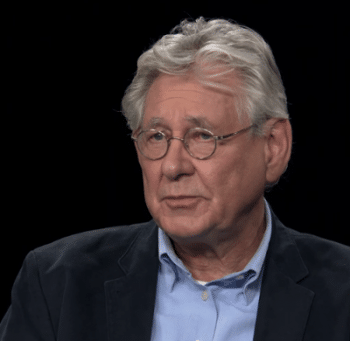The death of Leo Panitch has made the world a darker place. His writings have carried us through some of the most difficult periods in the history of the socialist left, as wave after wave of the neoliberal onslaught broke workers’ organizations, serving up one defeat after the next. Leo’s work sustained so many of us during these years, pushing us on and pointing the way through the storm.
This was not because he sowed illusions about just how bad things have been. Rather it was because, even as other erstwhile New Leftists lamented the “God That Failed,” he devoted himself to demonstrating the necessity of a democratic socialist society that would neither fall prey to the shortcomings of social democracy nor those of Soviet-style Communism.
Over the decade I knew Leo, he was my teacher, supervisor, and comrade. He was also a close friend. Aside from completing what ended up being the final doctoral dissertation under his supervision, I worked with him to build the Toronto-based Socialist Project, and collaborated on the past eight volumes of the Socialist Register he co-edited with Greg Albo. Leo saw the latter as a sacred covenant, the living link to the politics of the New Left and to his own mentor, Ralph Miliband, who founded the journal with John Saville in 1964.
 Early Development
Early Development
It was in the pages of the Register that Miliband developed his ground-breaking theory of the capitalist state. It was also where Leo later sharpened his–still utterly essential–critique of social democracy, as well as, with his co-author Sam Gindin, the theory of American empire that would ultimately culminate in their magnum opus The Making of Global Capitalism. The three of us also published a revised edition of The Socialist Challenge Today this year.
Leo was fond of quoting Ralph’s adage that the Register “should be hard to write for, as well as hard to read”–by which he meant that while the essays (not articles) should reward focused study and attention on the part of the reader, authors also had a responsibility to make them as readable as possible. This also meant it was hard to edit. The immensity of this task led Leo to institute a collective editorial process after he took over from Ralph. He constantly solicited input from the Editorial Collective for potential essays, topics, and angles to be covered; to devise volume themes along five-year plans; and to identify specific authors to cover particular issues years in advance.
The highly collaborative nature of the Register editorial process is seldom remarked upon, but was crucial to further expanding its reach and range of contributors. Bringing Colin Leys, Greg Albo, and Vivek Chibber on as co-editors in different periods was a further reflection of this gregarious and democratic spirit, as well as the fact that so many of his works were co-authored with close friends and comrades.
Each year, Leo devoted immense effort to working with authors to develop drafts–providing extensive feedback and striving always to make sure that “the style of writing was clear and accessible at a time when the opacity and clumsiness of much intellectual discourse affected the Left like a plague.”
In this vein, it has often been said that, like Ralph’s, Leo’s writing is “accessible.” This requires some clarification. Though he certainly sought to write clearly, and valued such efforts by others, he was constantly and outspokenly against any attempt to condescendingly “dumb down” ideas for popular consumption. This applied whether he was considering a Register essay or a pamphlet to be handed out on a city bus.
It is a testament to Leo’s socialist orientation that he was adamant that average working people be treated as thinking human beings capable of grappling with difficult ideas. Leo showed his respect for others through his willingness to engage with them as equals. And he did so honestly: if he disagreed, he would say so, and challenge people to think harder. This, too, attests to his socialist convictions.
In a world of polite but superficial niceties and sugar-coated small talk, Leo always gave it to you straight. Whether you agreed or disagreed, you always knew what he thought. His sharp wit, charisma, and forceful personality were disarming. Those who spent time with Leo couldn’t help but feel the impact of his presence on their ideas about the world. But he left this mark on people not simply by telling them what to think, but rather by pushing them to develop their own thoughts and arguments. As a result, many of the people for whom Leo was a teacher or mentor were changed forever by the experience–as has been reflected in the many touching tributes that have circulated on social media since his passing. Even people who simply shared a meal, a drink, or a discussion at a conference often found the exchange deeply memorable and formative.
Critique of Social Democracy
These socialist values were at the heart of his critique of social democracy, which was one of the central animating threads of his work. As Leo argued, social democratic parties were transformed into top-down institutions controlled by party bureaucrats, who seek to limit the political engagement of working-class people to voting or knocking on doors. Once elected, party “experts” would secure for the workers better living conditions within capitalism. What most bothered Leo about this was that it was entirely predicated on the assumed passivity of workers, rather than geared toward developing their democratic capacities to think, debate, and formulate political strategies and programs–the fundamental tasks of a socialist party.
Moreover, that this was based on a politics of class compromise meant disciplining workers, and limiting their horizons to what is possible within capitalism. Once capitalism is unable to accommodate such reforms, as happened following the crisis of the 1970s, they must be rolled back–and social democratic parties often proved particularly effective at doing so. This was especially the case as socialists, who certainly remained in these parties, were driven to the margins after their ideas had been deemed “unserious” for generations. Even if they had wanted to, these parties had no way of mobilizing workers to the degree that would have been necessary to halt or reverse the neoliberal onslaught.
The erosion of social democratic parties’ working class electoral base all across Europe is precisely the result of this dynamic. These parties became major forces institutionalizing neoliberalism, particularly in advancing market-based reforms under the rubric of the Third Way from the 1990s on.
To Leo, this proved that the fundamental task for socialists is to construct a party of a different kind–one based on empowering, educating, and mobilizing workers. This party, as he put it, was to be the “fulcrum” of working-class formation and state transformation. Far from simply seeking to win elections, it should aim to transform the state to create new forms of participatory democracy and economic planning, so that production was geared toward social need and not private profit. And rather than passivity, a socialist party must be able to cultivate the capacities of workers to mobilize for a new society–such that once the democratic reforms pursued by the party generate a capitalist crisis, rather than rolling them back, workers are prepared to push onward.
Most importantly, Leo’s socialism was one of sobriety and realism–two words of which he was very fond. His unwavering dedication to socialism was mirrored in his uncompromising refusal to retreat into empty slogans, tired dogmas, or comfortable illusions. He was deeply committed to living as if a better, post-capitalist society was possible. But at the same time, he refused to entertain shortcuts or proffer false hope.
In fact, Leo saw the fundamental role of a socialist intellectual as being to identify the limits, as well as the possibilities, of current left political strategies. Rather than seeing socialism as just around the corner, for him intellectual leadership was about understanding why the efforts of the Left had not resulted in a socialist society, and why the various shortcuts proposed as end-runs around the weakness of the working class were likely to fall short.
Above all, this demanded thinking historically. Abstract “concept-spinning,” as he called it, could be helpful for developing a framework through which to decode the immense complexity of history. But socialism is always a matter of actual concrete strategic questions in the here and now–and requires locating oneself at a point in history, uncovering its fault lines and trends, and sketching a way forward from there. This means understanding how politics is shaped by our historical moment, and how change arises from contradictions within that moment–and on this basis, attempting to seriously think through what would actually be required for us to get to a point where a socialist transition was a serious possibility. As his analyses always showed, the herculean nature of this task did not make it any less necessary.
All this gave Leo’s scholarly and political work a seriousness that is all-too-often lacking on the Left. Faced with the distant prospect of a socialist society, it is easy to resort to a politics of waiting for the systemic breakdown that will lead inexorably to socialism, or simply cheering on ephemeral protest movements whose political vision betrays a lack of careful, long-term, strategic analysis–or which in some cases lack clear objectives at all. The art of the conjunctural analysis–a careful reading of the balance of forces, of the contradictions within capital and the state which sustain the status quo and create openings to change it–is largely a lost one. But it was to this task that Leo devoted himself in seeking to understand the nature of the contemporary capitalist state, the limits of social democracy, and the logic of the American empire.
Central Role of the State
It is hard to communicate today just how anathema Leo’s assertion, along with his co-thinker Sam Gindin, that the state had not been supplanted by the ethereal forces of ‘globalization’ was during the 1990s and 2000s. In these years, the dominant strains of left theory asserted that multinational corporations, global ‘networks,’ and transnational institutions had bypassed the nation state as the main locus of political power. Leo, on the other hand, asserted that states were the primary authors of globalization, and had taken responsibility for facilitating the internationalization of capital–the American state above all, which uniquely superintended ‘the making of global capitalism.’
Rather than inter-imperial rivalry between major capitalist powers, as had existed previously, the postwar world was characterized by a condominium of capitalist states organized within an informal American empire. Nor were nationalist revolutions on the global periphery sufficient to undermine this imperial system. In fact, the “development” of the global periphery only led to demands from these bourgeoisies for greater integration within U.S.-led global capitalism. Anti-imperial struggle therefore entailed not nationalist alliances with bourgeoisies, but class struggle against them–especially in the heart of the empire itself.
Leo was also a committed socialist activist. He was both a regular panellist and constant attendee at the many public talks the Socialist Project organized over the years, which featured scholars and activists from all around the world–often at his invitation. When we took on a campaign to organize bus riders in an overwhelmingly working class, immigrant, and racialized neighbourhood, he was among the most enthusiastic participants. Closest to his heart, however, was the SP’s Cultural Committee, which he chaired. Leo believed deeply that socialist politics must not merely be a matter of economics. Rather, it had to incorporate a focus on developing the aptitudes, stunted and disfigured by capitalism, to participate in and appreciate the arts–as well as creating spaces for the formation of solidaristic communities and bonds of friendship.
 Leo continued to read voraciously, and to debate his views and ideas, until the last days of his life. The last time I saw him in person, not long before he was hospitalized, we sat for hours in his garden and discussed the limits of the New Left. While the refreshing and non-dogmatic approach to Marxism his generation had developed had been positive, he lamented that it had not produced a “new politics.” And he was quite pessimistic about the future. The limited democracy afforded by the American state, he thought, was under threat from the far-right, a frightening reality that a Joe Biden presidency would most likely do little to alleviate. While he was relieved that Trump had been defeated in the presidential election, he had no illusions that right populism would simply go away.
Leo continued to read voraciously, and to debate his views and ideas, until the last days of his life. The last time I saw him in person, not long before he was hospitalized, we sat for hours in his garden and discussed the limits of the New Left. While the refreshing and non-dogmatic approach to Marxism his generation had developed had been positive, he lamented that it had not produced a “new politics.” And he was quite pessimistic about the future. The limited democracy afforded by the American state, he thought, was under threat from the far-right, a frightening reality that a Joe Biden presidency would most likely do little to alleviate. While he was relieved that Trump had been defeated in the presidential election, he had no illusions that right populism would simply go away.
And yet at the same time he was deeply inspired by the energy, organizing, and creative thinking that had emerged around Momentum in Britain and the Democratic Socialists of America (DSA) in the United States. He was full of hope for these projects, which at their best were animated by the same commitment to democratic socialism that the Register had been since the days of Ralph Milliband. He knew that the process of developing these organizations would be messy and uneven, full of conflict, setbacks, and heartache. But he was deeply encouraged to see a new generation taking up the banner of socialism, returning to class struggle, and seeking to find the organizational forms that could give expression to the principles of democratic socialism.
Leo didn’t just wave the banner of socialist revolution. He actually meant it. It was this that most impressed me upon first meeting him a decade ago. Above all else, the utter earnestness of his commitment to socialism–to really building toward the possibility of achieving a new society–blew me away, and reshaped my understanding of what it means to be a socialist. And in changing the lives of the many people with whom he came into contact, he did transform the world. His commitment to socialist values, his honesty and integrity, his generosity and warmth and big-heartedness, should serve as an example for all of us.
Though larger than life in so many ways, Leo was after all a human being, and human beings die. His passing has been unspeakably difficult for me, as for so many others who were close to him. But insofar as he was dedicated to the socialist mission, something that is larger than his–or anyone else’s–life, he cannot die. He will live on in the ideas he espoused and the lives he touched.
This is an extended and revised version of the essay that appeared in Jacobin.
Stephen Maher is a social critic, recently completed his PhD at York University in Toronto and Socialist Register Assistant Editor.

